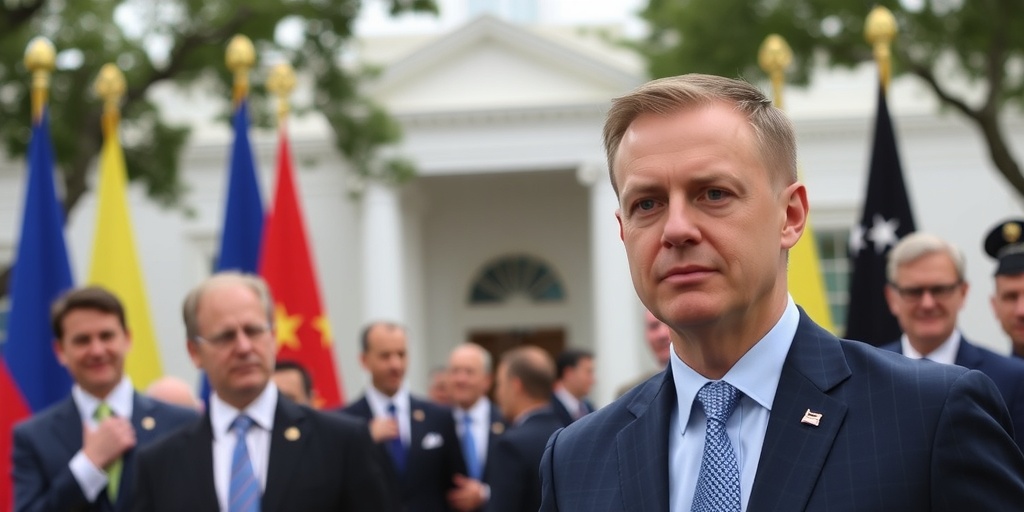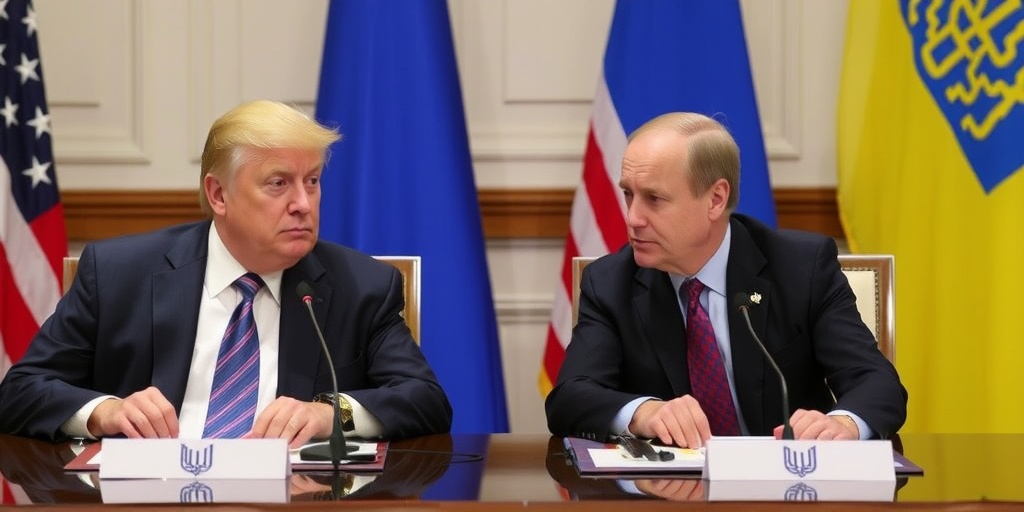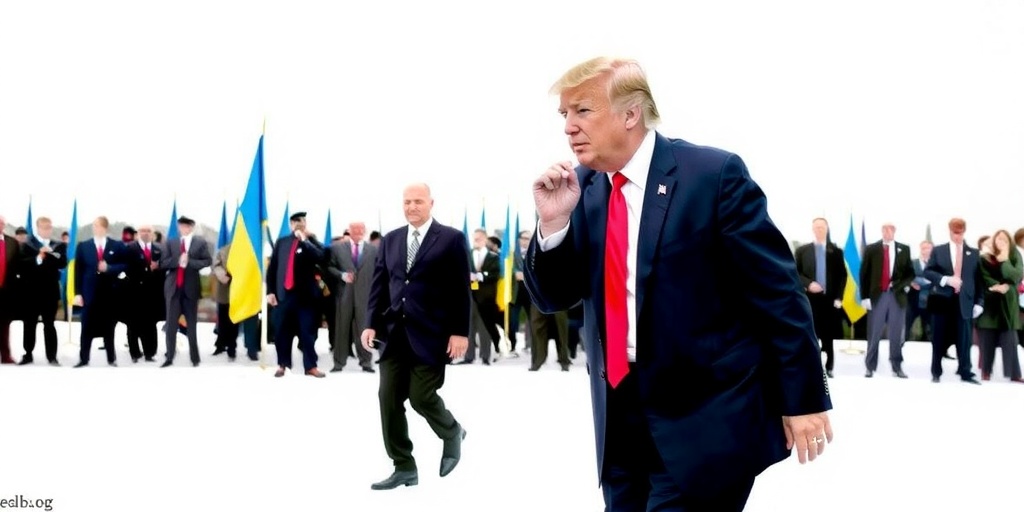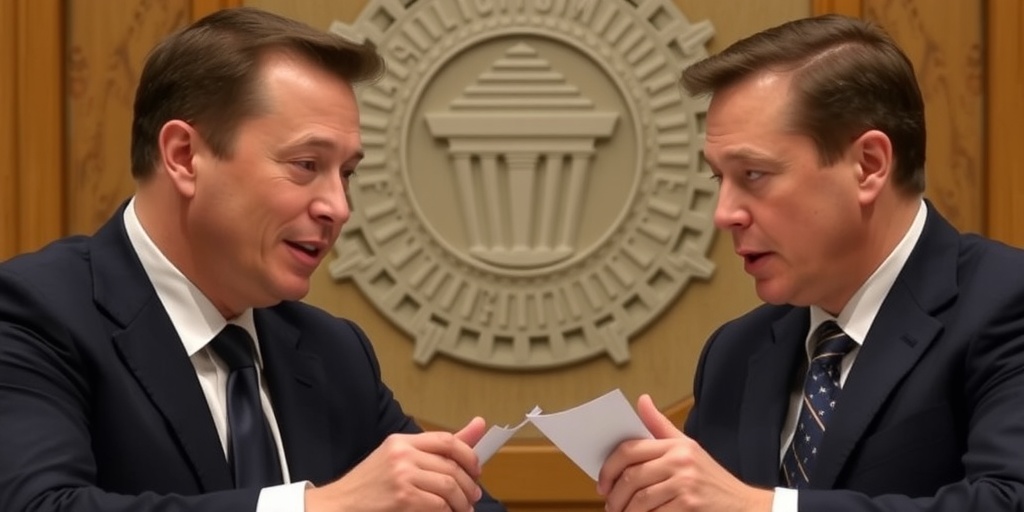Now Reading: Europe Unites Behind Zelensky Following Key White House Meeting
-
01
Europe Unites Behind Zelensky Following Key White House Meeting
Europe Unites Behind Zelensky Following Key White House Meeting

European Leaders Rally Behind Ukraine Following Trump’s Controversial Remarks
European leaders expressed unwavering support for Ukraine on Friday, soon after President Donald Trump made pointed criticisms of Ukrainian President Volodymyr Zelensky during a high-profile meeting at the White House. As the geopolitical landscape remains fraught with tension due to the ongoing conflict with Russia, statements of solidarity poured in from leaders across Europe, reaffirming their backing for Ukraine and its leader.
France, Germany, Poland, Spain, Denmark, the Netherlands, Portugal, the Czech Republic, Norway, Finland, Croatia, Estonia, Latvia, Slovenia, Belgium, Lithuania, Luxembourg, and Ireland were among the nations whose leaders publicly voiced their support for Zelensky on social media and through official statements. The quick and coordinated response illustrated the Europeans’ commitment to Ukraine, despite the provocative remarks from Trump, who reportedly told Zelensky he was “not in a good position” and threatened to withdraw U.S. support for Ukraine unless he agreed to a cease-fire with Russia.
Ursula von der Leyen, the president of the European Commission, offered a message of encouragement directly to Zelensky. On social media, she stated, “Your dignity honors the bravery of the Ukrainian people. Be strong, be brave, be fearless. You are never alone, dear President.” Such affirmations were meant to counter Trump’s harsh assessment and reassure the Ukrainian president of Europe’s ongoing solidarity.
French President Emmanuel Macron, who had previously endeavored to maintain a warm relationship with Trump during a recent visit, underscored the necessity of U.S. and European support for Ukraine. Macron articulated that the aid and sanctions imposed on Russia following its invasion three years ago were justified. He urged the U.S. to remain steadfastly on the side of the Ukrainians, emphasizing that they were fighting not only for their dignity and independence but also for the security of Europe.
Friedrich Merz, a key figure in German politics and a probable future chancellor, also expressed solidarity with Ukraine. Addressing his statement to “Dear Volodymyr,” he assured Zelensky that Germany would stand by Ukraine during both favorable and challenging times. Merz remarked, “We must never confuse aggressor and victim in this terrible war,” a comment that appeared directed at Trump, who has labeled Zelensky a dictator and blamed him for the conflict.
Chancellor Olaf Scholz, who is set to leave office, reaffirmed that Ukraine could rely on Germany and the broader European community for support. His sentiments echoed a growing concern among European officials regarding the implications of Trump’s comments and the possible shift in U.S. policy. Daniel Fried, a seasoned diplomat who has served under multiple U.S. administrations, noted that the confrontation in the Oval Office had sparked alarm in Europe, generating sympathy for Zelensky while disrupting a peace process that had shown signs of progress.
Fried added that European leaders are disheartened and troubled by the evolving stance of the United States, perceiving a transition toward a great-power strategy where larger nations could divide the world among themselves. This shift, he highlighted, clouds the future of transatlantic relationships that have historically been anchored in shared democratic values and mutual respect.
The response from British Prime Minister Keir Starmer reflected a cautious approach to diplomacy. During his visit to the White House on Thursday, Starmer avoided direct conflicts with Trump, but maintained his firm support for Ukraine. His office confirmed that he had communicated with both Trump and Zelensky shortly after the Oval Office meeting, emphasizing his commitment to securing a path forward toward lasting peace. In a significant move, Starmer is set to host an international meeting in London on Sunday, which will include Zelensky and other European leaders.
In contrast, Hungarian Prime Minister Viktor Orban, known for his right-wing nationalist positions, chose to echo Trump’s sentiments, suggesting that “strong men make peace, weak men make war,” in a social media post that did not reference Ukraine or Zelensky directly.
The impact of Trump’s remarks was also felt beyond Europe, with Russia welcoming his criticisms of Zelensky. Dmitry Medvedev, a prominent figure in Russian politics, claimed that Trump had spoken “the truth” regarding the situation in Ukraine.
Meanwhile, the Canadian Foreign Minister, Mélanie Joly, joined the chorus of support for Ukraine, asserting that the struggle of Ukrainians is not only about their own freedoms but is also a fight for collective safety, including that of Canada and its allies. She cautioned that maintaining unity among Western nations is crucial, particularly in light of Russia’s ongoing aggression.
President Zelensky’s response to the outpouring of support from European leaders was one of profound gratitude. He took to social media to thank each leader for their backing and offered an especially warm expression of appreciation to Trump, despite the president’s earlier criticisms. In his message, Zelensky highlighted the importance of striving for a “just and lasting peace” for Ukraine, resonating with the sentiments of his European allies.
As tensions continue to simmer, the collective position of European leaders in support of Ukraine reflects a determination to stand firm against aggressors, while also reassessing the dynamics of their relationship with the United States under Trump’s leadership. The situation remains uncertain, but the responses from Europe underscore the critical importance of unity in the face of ongoing challenges in global security.
Stay Informed With the Latest & Most Important News
Previous Post
Next Post
-
 01New technology breakthrough has everyone talking right now
01New technology breakthrough has everyone talking right now -
 02Unbelievable life hack everyone needs to try today
02Unbelievable life hack everyone needs to try today -
 03Fascinating discovery found buried deep beneath the ocean
03Fascinating discovery found buried deep beneath the ocean -
 04Man invents genius device that solves everyday problems
04Man invents genius device that solves everyday problems -
 05Shocking discovery that changes what we know forever
05Shocking discovery that changes what we know forever -
 06Internet goes wild over celebrity’s unexpected fashion choice
06Internet goes wild over celebrity’s unexpected fashion choice -
 07Rare animal sighting stuns scientists and wildlife lovers
07Rare animal sighting stuns scientists and wildlife lovers





















